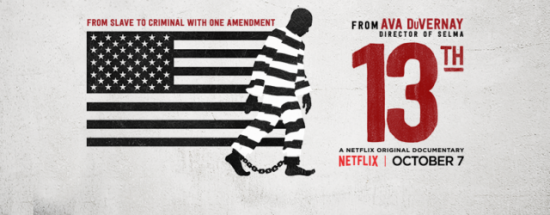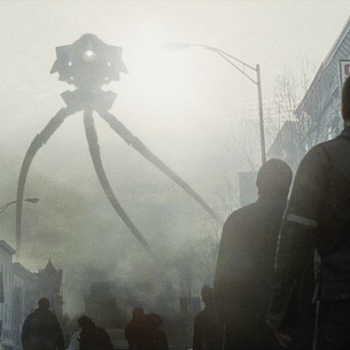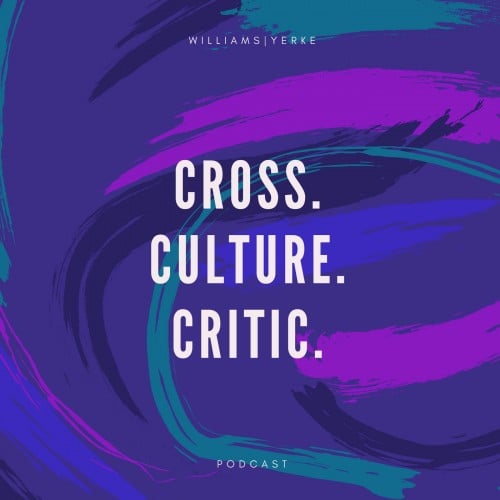13th
I’ve been planning this post for awhile, and an early iteration included Ava DuVernay’s 2014 film, “Selma.” DuVernay’s film about Martin Luther King, Jr.’s march through the Alabama town was one of the year’s best films, and I feel not enough people have seen this passionate, well-made look at political protest, especially one based on Christian beliefs.
But then DuVernay released the incendiary documentary “13th” on Netflix last week. And this film is essential viewing for all Americans, especially those with any lingering questions about whether racism still exists in America and the importance of the Black Lives Matter movement.
The doc’s title regards the 13th amendment to the U.S. Constitution, with abolished slavery, but with a catch: people could still be forced to work if they were prisoners. From that loophole, DuVernay traces the treatment of black people in the United States by the media and government, from the mass arrests after the Civil War, through their vilification in films like (the original) “The Birth of a Nation,” and through devastating crime legislation. She draws a line from this to our modern, overcrowded prison system. The film gains added relevancy by including problematic views from both sides of our current Presidential contest: Donald Trump wistfully talking about days when protesters were taken outside and beaten is inter-cut with harrowing footage of racial violence throughout America’s history, Hillary Clinton’s “super predator” comments are featured, and the film spends a great deal of time talking about legislation introduced by Bill Clinton in the 1990s that made things much worse (Clinton has since remarked that he was wrong enacting that legislation; his remarks are included in the film).
It’s undeniably powerful and enraging. As a white man, I felt ashamed; I’ve never had to deal with this. As a Christian, I felt ashamed that it wasn’t until my mid-twenties that I even heard the concept of racial justice addressed from the pulpits of my lily-white churches. In her review for Vox, critic Alissa Wilkinson wrote that watching the film “is like standing in the way of a fire hose that’s being slowly cranked up to full blast. You take a little more pressure every moment, until it gets to be staggering, a little bruising. Then you turn around and realize that the hose is aimed at a blazing fire.” I agree, although I think that the fire-hose approach might be one of the film’s minor flaws. So much information is presented in just over 90 minutes that it’s overwhelming, and it can’t help but feel a bit too surface-level.
Then again, the overwhelming feeling is part of “13th’s” power. Sure, it would be great to give DuVernay eight episodes on Netflix to delve deeply into these issues or let her have a three-hour run time. But DuVernay’s not setting out to solve the problem; this is an urgent film, released to give people the information to start a dialogue. It’s meant to incite conversation, not to be the final word. And at that, it succeeds wonderfully. DuVernay may have only made a handful of films so far, but she has quickly become one of the top directors to pay attention to.
“13th” is currently streaming on Netflix.













